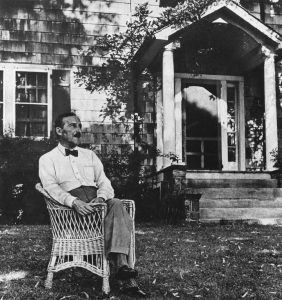Modified source Layne Beachly ... More on the wisdom of Eric Weinstein.
Americans—especially Republicans and those with higher education—believe two-thirds of news on social media is fake.
↩︎ Poynter
Marijuana drug wins FDA approval a birgin one, first, that may change federal regulations

Life, Liberty, and Trade Secrets Rebecca Wexler, Stanford Law Review. “A criminal trade secret privilege is ahistorical, harmful to defendants, and unnecessary to protect the interests of the secret holder.”
How
government can work with academia
"Government can improve the way it uses academic evidence and expertise in forming policy." (The Institute for Government)
'Transformation is nothing to do with tech’
"The UK Government's national technology adviser discusses why getting digital reforms through the machinery of government may require some help from Jason Bourne." (Civil Service World)
Trump caves, embarrassing his sycophants again
"The President's retreat doesn't solve the problem." (Washington Post)
Country by country, when people around the world retire
↩︎ RedditMarijuana drug wins FDA approval a birgin one, first, that may change federal regulations

George Prochnik in The New Yorker:
 The Austrian émigré writer Stefan Zweig composed the first draft of his memoir, “The World of Yesterday,” in a feverish rapture during the summer of 1941, as headlines gave every indication that civilization was being swallowed in darkness. Zweig’s beloved France had fallen to the Nazis the previous year. The Blitz had reached a peak in May, with almost fifteen hundred Londoners dying in a single night. Operation Barbarossa, the colossal invasion of the Soviet Union by the Axis powers, in which nearly a million people would die, had launched in June. Hitler’s Einsatzgruppen, mobile killing squads, roared along just behind the Army, massacring Jews and other vilified groups—often with the help of local police and ordinary citizens.
The Austrian émigré writer Stefan Zweig composed the first draft of his memoir, “The World of Yesterday,” in a feverish rapture during the summer of 1941, as headlines gave every indication that civilization was being swallowed in darkness. Zweig’s beloved France had fallen to the Nazis the previous year. The Blitz had reached a peak in May, with almost fifteen hundred Londoners dying in a single night. Operation Barbarossa, the colossal invasion of the Soviet Union by the Axis powers, in which nearly a million people would die, had launched in June. Hitler’s Einsatzgruppen, mobile killing squads, roared along just behind the Army, massacring Jews and other vilified groups—often with the help of local police and ordinary citizens.
 The Austrian émigré writer Stefan Zweig composed the first draft of his memoir, “The World of Yesterday,” in a feverish rapture during the summer of 1941, as headlines gave every indication that civilization was being swallowed in darkness. Zweig’s beloved France had fallen to the Nazis the previous year. The Blitz had reached a peak in May, with almost fifteen hundred Londoners dying in a single night. Operation Barbarossa, the colossal invasion of the Soviet Union by the Axis powers, in which nearly a million people would die, had launched in June. Hitler’s Einsatzgruppen, mobile killing squads, roared along just behind the Army, massacring Jews and other vilified groups—often with the help of local police and ordinary citizens.
The Austrian émigré writer Stefan Zweig composed the first draft of his memoir, “The World of Yesterday,” in a feverish rapture during the summer of 1941, as headlines gave every indication that civilization was being swallowed in darkness. Zweig’s beloved France had fallen to the Nazis the previous year. The Blitz had reached a peak in May, with almost fifteen hundred Londoners dying in a single night. Operation Barbarossa, the colossal invasion of the Soviet Union by the Axis powers, in which nearly a million people would die, had launched in June. Hitler’s Einsatzgruppen, mobile killing squads, roared along just behind the Army, massacring Jews and other vilified groups—often with the help of local police and ordinary citizens.When It’s Too Late To Stop Fascism, According To Stefan Zweig
Wittenoom: An Australian Tragedy BBC. From their “Witness” series.
"Government can improve the way it uses academic evidence and expertise in forming policy." (The Institute for Government)
'Transformation is nothing to do with tech’
"The UK Government's national technology adviser discusses why getting digital reforms through the machinery of government may require some help from Jason Bourne." (Civil Service World)
Trump caves, embarrassing his sycophants again
"The President's retreat doesn't solve the problem." (Washington Post)
The Billionaire Class is Not Fit to Rule – Paul Jay Real News Network. A fundraising pitch, but very good regardless. And if you are flush, TRNN is a worthy cause.
The decline of America’s middle classes Financial Times
DAVID SOLWAY: Why Socialism Is Doomed To Fail. “Disproportion is intrinsic to human life.” Socialism doesn’t alleviate disproportion; it enshrines it in legalized lawlessness
What made the Nazis possible? Why didn’t anyone stop them?
With an eye on the current political situations in the US, Turkey, Russia, and China, Cass Sunstein reviews three books that shed light on how the Nazis came to power in Germany in the 1930s: They Thought They Were Free: The Germans, 1933-45 by Milton Mayer, Broken Lives: How Ordinary Germans Experienced the Twentieth Century by Konrad Jarausch, and Defying Hitler by Sebastian Haffner.
Mayer’s book was published in 1955 and consisted of post-war interviews with normal German people (janitor, baker, teacher) who had been Nazi party members. Their recollection of what had happened differed somewhat from the rest of the world’s.
When Mayer returned home, he was afraid for his own country. He felt “that it was not German Man that I had met, but Man,” and that under the right conditions, he could well have turned out as his German friends did. He learned that Nazism took over Germany not “by subversion from within, but with a whoop and a holler.” Many Germans “wanted it; they got it; and they liked it.”Mayer’s most stunning conclusion is that with one partial exception (the teacher), none of his subjects “saw Nazism as we — you and I — saw it in any respect.” Where most of us understand Nazism as a form of tyranny, Mayer’s subjects “did not know before 1933 that Nazism was evil. They did not know between 1933 and 1945 that it was evil. And they do not know it now.” Seven years after the war, they looked back on the period from 1933 to 1939 as the best time of their lives.